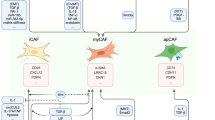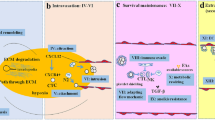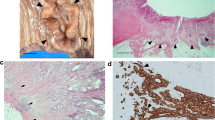Abstract.
Tumor progression and metastasis are the pathologic effects of uncontrolled or deregulated invasive growth, a process in which proteases play a fundamental role. They mediate the degradation of extracellular matrix components and intercellular cohesive structures to allow migration of the cells into the extracellular environment and activate growth and angiogenic factors. In addition to metalloproteases and the plasminogen activation system, another protease, matriptase, contributes substantially to these processes. Matriptase is a type II transmembrane trypsin-like serine protease that is expressed by cells of epithelial origin and is overexpressed in a variety of human cancers. It has been suggested that this protease not only facilitates cellular invasiveness but may also activate oncogenic pathways. This review summarizes current knowledge about matriptase, its putative role in tumor initiation and progression, and its potential as a novel target in anti-cancer therapy.
Similar content being viewed by others
Author information
Authors and Affiliations
Corresponding author
Additional information
Received 29 June 2006; received after revision 1 August 2006; accepted 19 September 2006
Rights and permissions
About this article
Cite this article
Uhland, K. Matriptase and its putative role in cancer. Cell. Mol. Life Sci. 63, 2968–2978 (2006). https://doi.org/10.1007/s00018-006-6298-x
Published:
Issue Date:
DOI: https://doi.org/10.1007/s00018-006-6298-x




